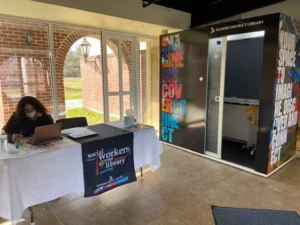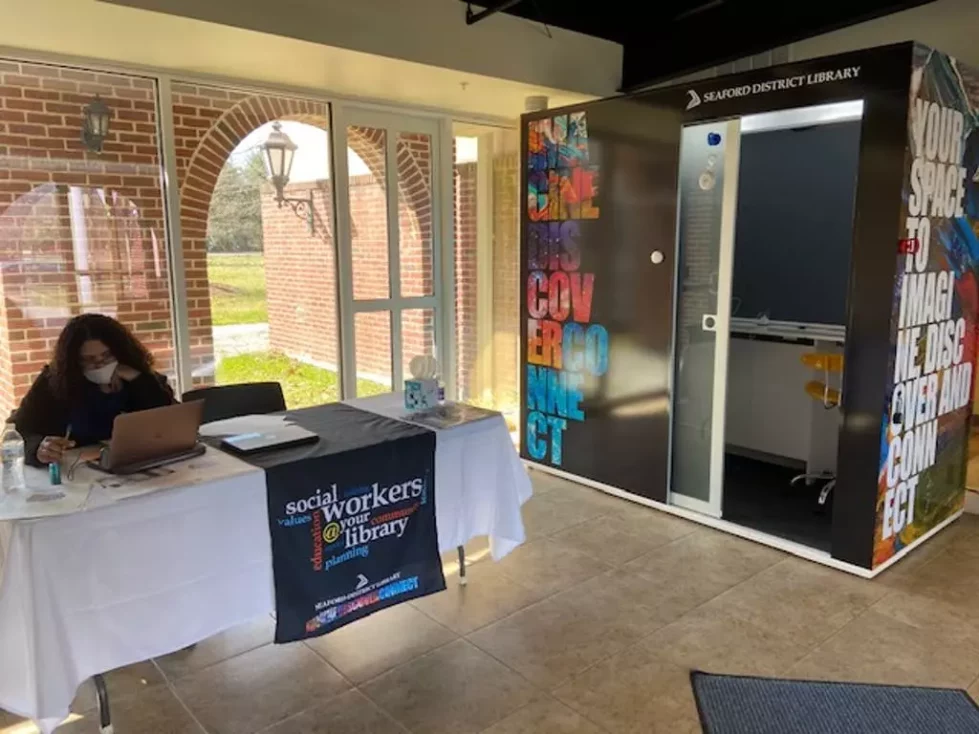

The state is planning an advertising campaign to get more people to use kiosks at libraries.
The state plans a marketing campaign to encourage more residents to use Social Service Kiosks that now exist in some libraries to access medical and other private services.
The soundproof booths are located in 13 different libraries across the state.
Health and library officials hoped they would help some of Delaware’s more disadvantaged populations get the help they needed to participate in telehealth services, online job interviews or legal appointments.
But the booths haven’t gotten a lot of use, said Leesa Kellam-Sheppard, with the Delaware Department of Health and Social Services.
She believes most people aren’t aware they exist and hopes the advertising campaign will drive people to the booths.
The campaign is expected to last at least two to three months and use billboards as well as social media and radio ads that will target Hispanic and Haitian Creole communities.
Some of a four-year, $2 million grant to address substance use disorder and behavioral health care will be used for the campaign.
“There’s a need, because in Sussex County you have a transportation issue,” Kellam-Sheppard said. “And sometimes maybe they don’t want to go to certain doctors offices because of the stigma. So that’s just another way that they get the care they need.”
Related Story: Delaware libraries give soundproof booths a trial run in Sussex
Gail Bruce, director of the Laurel Public Library, said she said people occasionally use the booth installed there in 2021, but she thinks most people shied away from it because of COVID-19.
“People were still hesitant to use even that, at that time,” she said.
A social worker who comes to the library twice a week sometimes uses it with clients if an issue is private, Bruce said.
Mostly, though, the social worker will talk with people in the library.
The library also has a tele-service navigator who comes twice a week to help people with green cards, food stamps, Medicare, Medicaid or other social services.
Most community members feel more comfortable talking outside of the booth, she said.
Bruce also thinks that so many people already have access to electronic devices, the booths aren’t as useful as planners hoped they would be.
A lot of people now have at home phones, internet access and even devices that have been provided through schools, she said.
“It’s probably just a little combination of everything,” she said.
Share this Post



